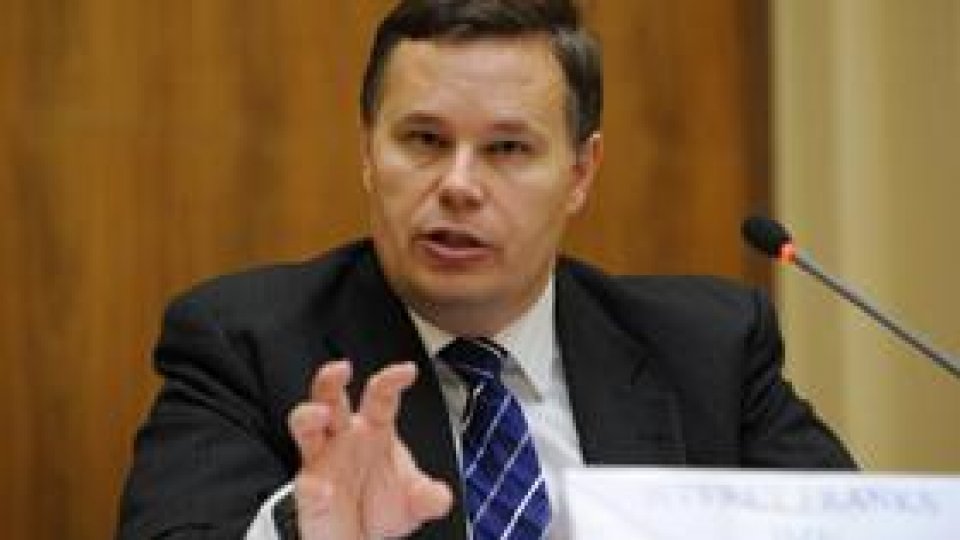The IMF Mission back to Romania
The IMF is monitoring companies operating in the fields of road and railway infrastructure, thermal and electric energy and coal extraction.

23 Octombrie 2010, 18:18
After talks hosted by the Finance Ministry, the head of the IMF mission to Bucharest, Jeffrey Franks, said that the data related to the budget deficit for the 3rd quarter of the year looked good enough, which means that Romania stands good chances to maintain the deficit target set for this year, namely 6.8% of the GDP.
On the other hand the budget deficit limit for next year remains 4.4%, Jeffrey Franks pointed out, when asked about the reduction of VAT for basic foodstuffs to 5% and tax-exemption for pensions of less than 460 euros. The two measures were adopted at the middle of the week by the Chamber of Deputies, with the involuntary help of the government coalition MPs.
Embarrassed by the blunder of its own majority, the government promised the IMF representatives to remedy the situation by November 1st, when the current IMF mission comes to an end.
The two laws passed by MPs blatantly run counter to the austerity policy the government took responsibility for by concluding a loan accord with the IMF, the World Bank and the European Commission.
The IMF delegation also had talks with the Economy Ministry representatives, which focused on the large state-owned companies and the measures the authorities have to take in order to escape from the losses that these companies report.
The IMF is monitoring companies operating in the fields of road and railway infrastructure, thermal and electric energy and coal extraction. In the summer the government announced it would re-assess the budgets of these companies. The alternatives are very clear and the heads of state-owned enterprises have to choose between cutting salaries and layoffs.
As regards state-sector employees, the IMF delegation has no longer evoked the need for layoffs or salary cuts, given that the government has already carried out a 25% cut to state employees’ salaries.
On the other hand, Romania’s representative to the IMF, Mihai Tanasescu, who participated in a program on Radio Romania, has criticized the government’s suggestion to increase the minimum salary.
“I believe that an increase in the minimum salary in the state sector, which will certainly entail an increase in the minimum salary in the private sector, will lead to a decrease in economic competitiveness and in the export of Romanian-made products; it will also lead to unemployment and to various constraints from the private sector in terms of development. Therefore we have to very cautious when taking such a measure and we should also look at the negative side of it", said Mihai Tanasescu.
(Radio România Internaţional, Serviciul în limba engleză).














